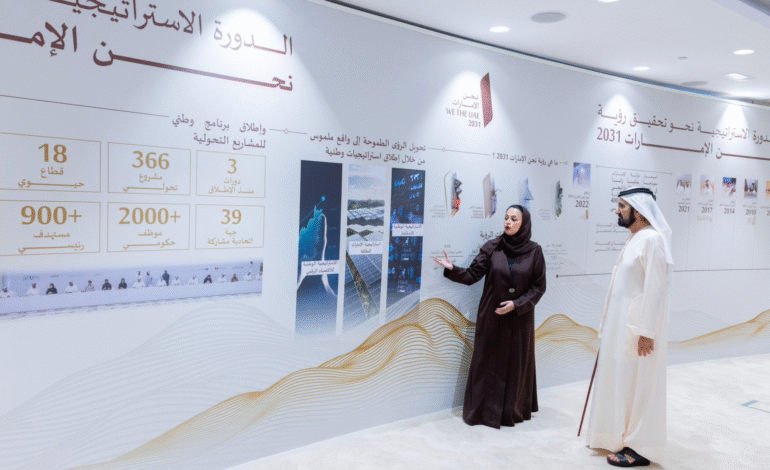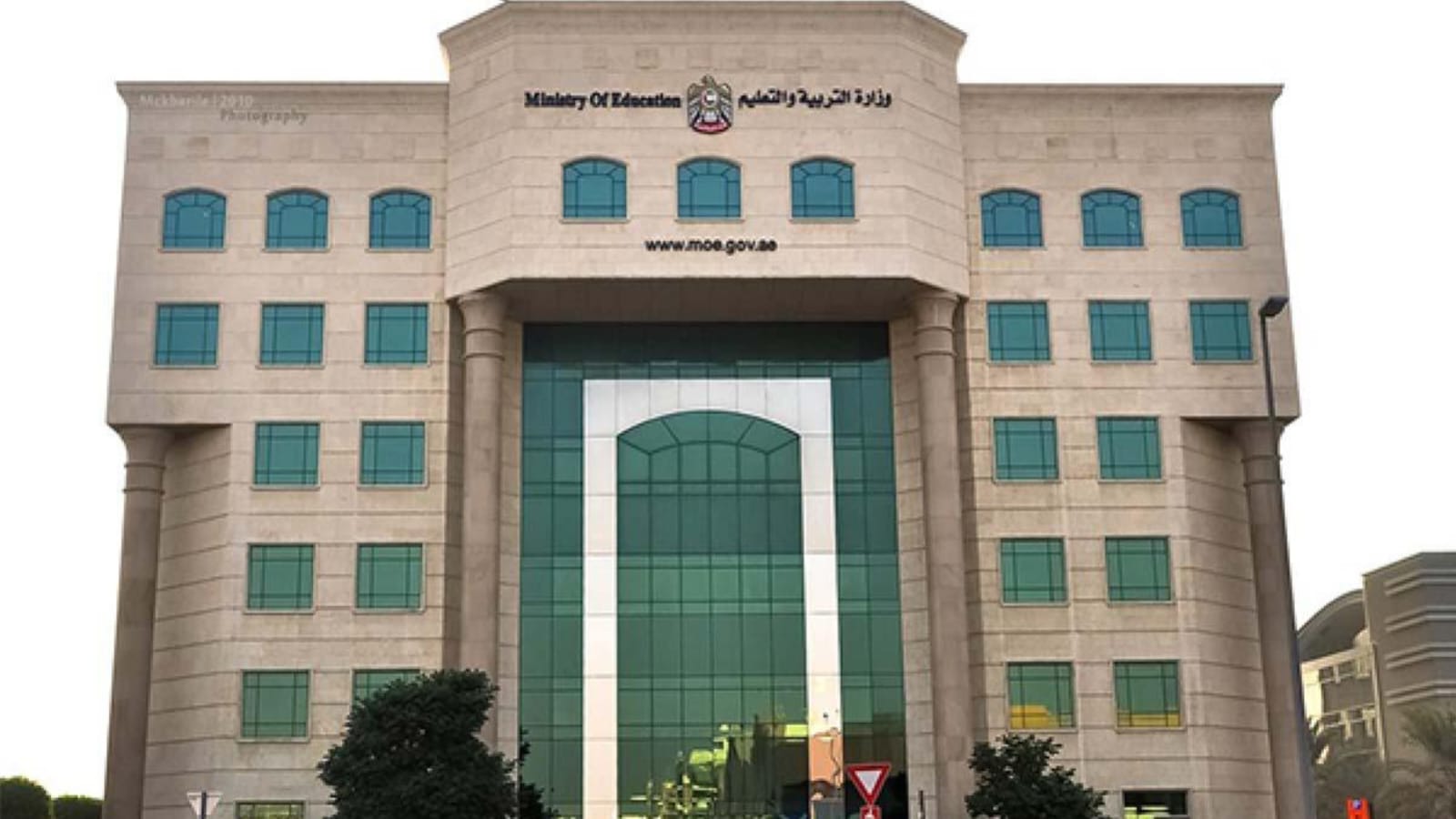UAE Reinvents Government with Bold AI and Innovation Drive

The United Arab Emirates has taken a significant leap forward in government innovation and strategic foresight with the launch of its new strategic planning cycle aligned with the “We the UAE 2031” vision. Spearheaded by His Highness Sheikh Mohammed Bin Rashid Al Maktoum, Prime Minister of the UAE this advanced planning framework underscores the nation’s commitment to proactive governance, artificial intelligence integration, and future-readiness across all sectors.
A Vision Rooted in Proactive Leadership
Sheikh Mohammed reaffirmed the UAE’s commitment to enhancing government performance by emphasizing strategic agility, innovation, and service to its citizens. His Highness stated, “Tools and priorities may change, but our mission to serve the people of the UAE remains constant.”
This statement reflects a visionary governance model that pivots from traditional bureaucratic structures to agile, tech-driven planning. By reducing procedural complexity and adopting smart solutions, the UAE aims to become a global exemplar of efficient, data-driven government operations.
Embracing Artificial Intelligence and Intelligent Governance
At the heart of this new cycle is the incorporation of artificial intelligence (AI) in federal strategic planning. AI will play a critical role in simplifying government procedures, optimizing national resources, and improving financial efficiency. This digital transformation is a key component of the “We the UAE 2031” vision, aimed at aligning government functions with global advancements in digital infrastructure and smart technology.
Government success, as outlined by Sheikh Mohammed, is no longer determined by exhaustive regulatory frameworks, but rather by intelligent agility, real-time responsiveness, and resource optimization. AI will enable ministries and federal bodies to make informed, predictive decisions that meet the demands of a rapidly evolving global environment.
Launching the New Strategic Cycle: A Collaborative Effort
The strategic planning cycle was formally launched during a high-level event attended by prominent national leaders, including Sheikh Ahmed Bin Mohammed Bin Rashid Al Maktoum, Chairman of the Dubai Media Council; Mohammed Abdullah Al Gergawi, Minister of Cabinet Affairs; and Huda Al Hashimi, Head of Strategy and Government Innovation for the UAE Government.
This ambitious initiative involves 38 federal government entities and integrates strategic, financial, and operational alignment across ministries. Directors of strategy, finance, and future planning will collaborate closely to ensure the execution of forward-thinking policies and initiatives.
Shorter Cycles for Higher Impact
One of the key reforms in the new model is the shortening of strategic cycles from five years to three. This shift enables the UAE government to respond to changes more swiftly and keep policies updated in real time. The objective is to ensure that strategic plans remain dynamic, actionable, and fully aligned with both national and international developments.
This change reflects the UAE’s belief in government agility as a core strength allowing federal bodies to better handle volatility, address complex challenges, and adapt to evolving circumstances with a future-focused approach.
Strategic Intelligence: Empowering Better Decisions
The new cycle introduces strategic intelligence as a fundamental building block in government planning. This concept involves the use of big data, predictive analytics, and machine learning tools to anticipate future challenges and opportunities.
Workshops organized by the Prime Minister’s Office provided federal entities with hands-on exposure to strategic intelligence methodologies. These training sessions emphasized data-driven decision-making and demonstrated how strategic indicators can enhance governmental responsiveness.
With this forward-looking capability, the UAE positions itself not just as a regional leader but also as a global pioneer in applying AI and strategic intelligence to public governance.
Integration of National Initiatives and Agile Execution
One of the model’s core principles is the seamless integration of national initiatives into federal entity plans. Whether it’s the National Investment Strategy, National Cybersecurity Strategy, or other key frameworks, these initiatives are now streamlined into one cohesive planning system.
By simplifying procedures and reducing red tape, ministries can devote more energy to executing impactful projects rather than engaging in routine operations. The focus shifts to delivering results, aligning with measurable key performance indicators, and ensuring efficient use of public funds.
This streamlined model empowers government teams to engage in cross-functional collaboration, eliminating silos, and encouraging coordinated action across departments.
Enhancing Government Readiness Through Workshops
The Ministry of Cabinet Affairs played a pivotal role by organizing workshops aimed at educating and aligning ministries on the new model. These sessions explored the framework’s essential components: AI integration, procedure simplification, strategic alignment, and financial efficiency.
One major topic was how planning frameworks must evolve to keep pace with global disruption, including economic shifts, technological revolutions, and public policy reformation. Participants were encouraged to adopt a shared mindset focused on transformation, resilience, and data-led execution.
The workshop also examined performance-enhancing tools, forecasting systems, and integrated dashboard technologies that will be embedded in the new cycle to track progress and allocate resources effectively.
Collaborative Governance for National Growth
The UAE leadership emphasizes collective governance a model that depends on strong partnerships between ministries and federal bodies. The new planning cycle institutionalizes this collaboration by bringing together strategy and finance directors, ensuring that every policy, initiative, and investment is mission-aligned.
This cooperative structure is essential for the realization of national goals under the We the UAE 2031 vision, a blueprint designed to ensure economic diversification, social prosperity, and global competitiveness.
The government’s dedication to interdepartmental coordination ensures that strategy is no longer confined to high-level reports but becomes part of daily operational culture.
Future-Ready Workforce and National Talent Development
Aligned with the UAE’s ambition to be a hub for innovation, the new cycle encourages the upskilling of government staff in strategic planning, data analysis, and digital transformation. Through programs led by Huda Al Hashimi and others, government officials are now being trained in advanced planning techniques to implement the national vision with agility and precision.
This national talent development initiative supports a future-ready workforce, ensuring that UAE citizens play a central role in shaping government priorities. From AI integration to policy execution, local talent is being empowered to lead the charge in government modernization.
National Strategies Aligned With 2031 Vision
In recent months, the UAE has rolled out key national strategies that embody the spirit of We the UAE 2031. These include:
The National Cybersecurity Strategy: Safeguarding the country’s digital infrastructure
The National Investment Strategy: Expanding economic opportunity and global competitiveness
A number of public sector transformation plans that bring digital governance and innovation to the forefront
Each of these strategies has been fine-tuned to match the goals of the new strategic planning cycle. They provide practical roadmaps for implementing the UAE’s long-term ambitions across critical sectors such as technology, education, infrastructure, and health.
Strategic Planning for a Resilient, Innovative UAE
In summary, the UAE’s updated approach to federal government planning is more than a policy shift it’s a cultural transformation. Guided by visionary leadership, the nation is establishing a planning ecosystem that is intelligent, adaptive, and citizen-focused.
From predictive AI tools to seamless inter-ministry collaboration, every aspect of the new cycle supports a resilient governance framework that prepares the country for future uncertainties. The proactive nature of the model reflects the UAE’s belief that tomorrow’s challenges must be addressed with today’s strategies.
As the 2031 vision gains momentum, this strategic cycle will play an instrumental role in achieving a sustainable, globally competitive, and innovation-led future for the UAE.







